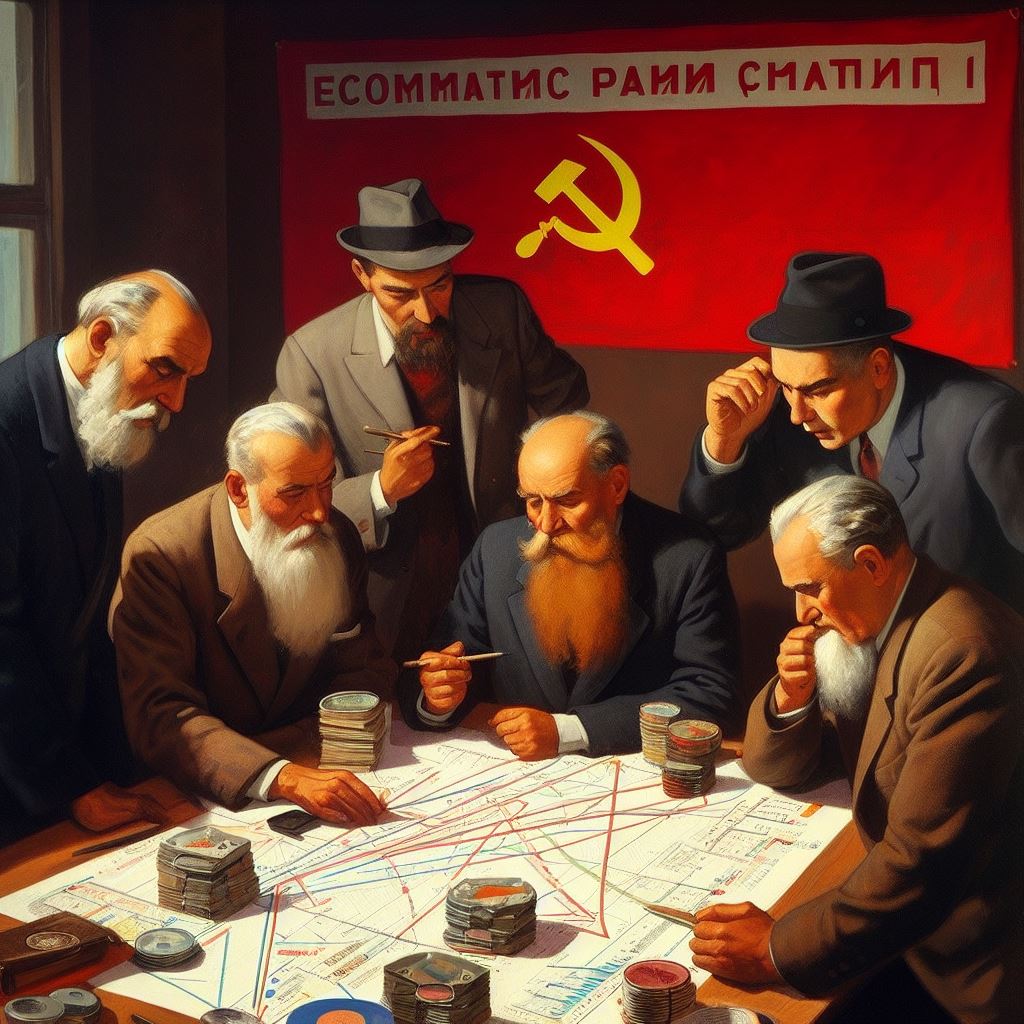The Socialist Calculation Debate – then and now (Part 2)
SUGGESTED



…continued from Part 1
Von Mises’s claim about the impossibility of economic calculation under socialism was a game changer in several ways.
Firstly, it was a complete inversion of what was a widely held view at the time: that capitalism was chaotic (Marx and Engels had talked about “anarchy in production”), while a socialist economy would be rationally planned. Au contraire, said von Mises. A capitalist economy may seem “chaotic”, because nobody is in charge of it overall. But it is the only kind of economy which enables us to rationally compare costs and benefits of different courses of action. It is precisely the “planned” economy which is chaotic, because it makes genuine planning impossible:
“[W]e have the spectacle of a socialist economic order floundering in the ocean of possible and conceivable economic combinations without the compass of economic calculation. Thus in the socialist commonwealth every economic change becomes an undertaking whose success can be neither appraised in advance nor later retrospectively determined. There is only groping in the dark. Socialism is the abolition of rational economy.”
Secondly, it forced socialist economists to think more carefully about what “economic planning” was supposed to look like, in practice. Some socialists tried to rebut von Mises’s arguments – that is what made the Socialist Calculation Debate a debate. Oskar Lange, an economist who would later become a senior figure in the Polish People’s Republic, wrote in 1936, almost certainly slightly tongue-in-cheek:
“Socialists have certainly good reason to be grateful to Professor Mises, the great advocatus diabol of their cause. For it was his powerful challenge that forced the socialists to recognize the importance of an adequate system of economic accounting to guide the allocation of resources in a socialist economy. […] [T]he merit of having caused the socialists to approach this problem systematically belongs entirely to Professor Mises. […] [A] statue of Professor Mises ought to occupy an honorable place in the great hall of the Ministry of Socialization or of the Central Planning Board of the socialist state.”
Lange believed that von Mises was ultimately wrong, and that the state could set prices just as well as the market could:
“[I]n a socialist economy […] the process of price determination is quite analogous to that in a competitive market. The Central Planning Board performs the functions of the market. […] [A] substitution of planning for the functions of the market is quite possible and workable.”
This may sound strange, but up until this point, socialists had never really thought about how a socialist economy would work, in practice. Marx and Engels had certainly never bothered with this. Even Lenin only had this to say:
“All citizens are transformed into hired employees of the state, which consists of the armed workers. All citizens become employees and workers of a single countrywide state “syndicate”. All that is required is that they should work equally, do their proper share of work, and get equal pay; the accounting and control necessary for this have been simplified by capitalism to the utmost and reduced to the extraordinarily simple operations – which any literate person can perform – of supervising and recording, knowledge of the four rules of arithmetic, and issuing appropriate receipts.”
That’s it. That’s how easy this is. Just a bit of bookkeeping and receipt-issuing, and job done. After the Russian Revolution, he – or rather, the people unfortunate enough to be subjected to that experiment – learned the hard way that there is bit more to economics than issuing receipts.
Anyway – that was the first round of the Socialist Calculation Debate. One of von Mises’s students, the future Nobel Prize winner Friedrich August von Hayek, later refined the arguments.
Hayek made it clearer what it is about market prices that makes them such a vital tool, and why state-set prices were not an adequate substitute.
The basic idea is this:
In an advanced, complex economy, we rely on specialisation, and a division of labour. Nobody knows how to do everything. There are no brain surgeons who are also great plumbers, electricians, poets, translators and foreign policy experts. But everyone knows how to do something. So we all do different things, and then we make those different pieces fit together.
In the same way, advanced, complex economies rely on a division of knowledge. Nobody knows everything about the economy. Nobody knows more than a tiny part of it. But we all know something. We all have some economically relevant knowledge: maybe about the industry we work in, the region we live in, or if nothing else – we all know our own preferences better than anyone else.
We all bring some knowledge to the market. The market aggregates all that knowledge, and spreads it. An example Hayek used was that of a sudden drop in the supply of tin somewhere in the world; or alternatively, a new industrial use for tin is discovered, leading to a jump in demand.
Most of us have no idea about that sector of the economy. We know nothing about tin mining, and we have no idea that this happened. But we don’t need to know that. All we need to do is observe that tin prices, and the prices of products which contain tin, have gone up, and react to that in some way. Companies that use tin to make, say, furniture may look for some substitute. Consumers may shift to an alternative product that uses less tin, or if that is not possible, simply reduce their consumption of tin-containing products. At the same time, someone, somewhere, will spot the profit opportunity, and try to bring new supplies of tin or close substitutes to the market.
We all do this multiple times a day: we react to price changes, sometimes almost automatically, usually without knowing anything about what caused them. And we don’t need to know that. Someone, somewhere, does, and their knowledge is contained in the prices. Economic conditions change all the time, in ways that we are mostly ignorant of, and through the price system, relevant bits of that knowledge spread throughout the economy.
Planned economies do not have this mechanism. They rely on a planning board to collate and evaluate all the relevant information. Hayek did not go quite as far as von Mises: he did not say that a socialist economy is literally impossible. He just said that it was a vastly inferior way to organise an economy.
Continue to Part 3




